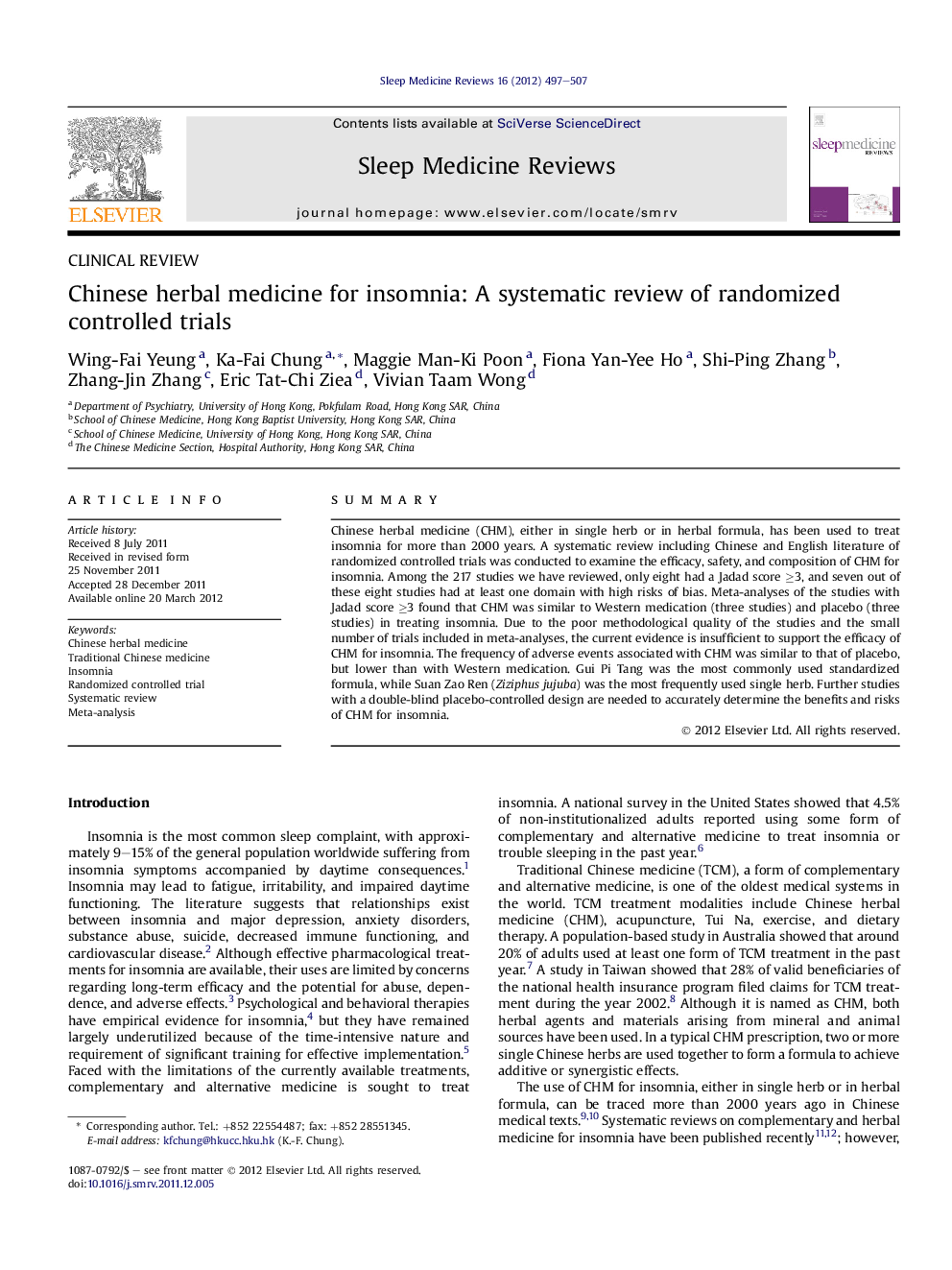| Article ID | Journal | Published Year | Pages | File Type |
|---|---|---|---|---|
| 3091518 | Sleep Medicine Reviews | 2012 | 11 Pages |
SummaryChinese herbal medicine (CHM), either in single herb or in herbal formula, has been used to treat insomnia for more than 2000 years. A systematic review including Chinese and English literature of randomized controlled trials was conducted to examine the efficacy, safety, and composition of CHM for insomnia. Among the 217 studies we have reviewed, only eight had a Jadad score ≥3, and seven out of these eight studies had at least one domain with high risks of bias. Meta-analyses of the studies with Jadad score ≥3 found that CHM was similar to Western medication (three studies) and placebo (three studies) in treating insomnia. Due to the poor methodological quality of the studies and the small number of trials included in meta-analyses, the current evidence is insufficient to support the efficacy of CHM for insomnia. The frequency of adverse events associated with CHM was similar to that of placebo, but lower than with Western medication. Gui Pi Tang was the most commonly used standardized formula, while Suan Zao Ren (Ziziphus jujuba) was the most frequently used single herb. Further studies with a double-blind placebo-controlled design are needed to accurately determine the benefits and risks of CHM for insomnia.
